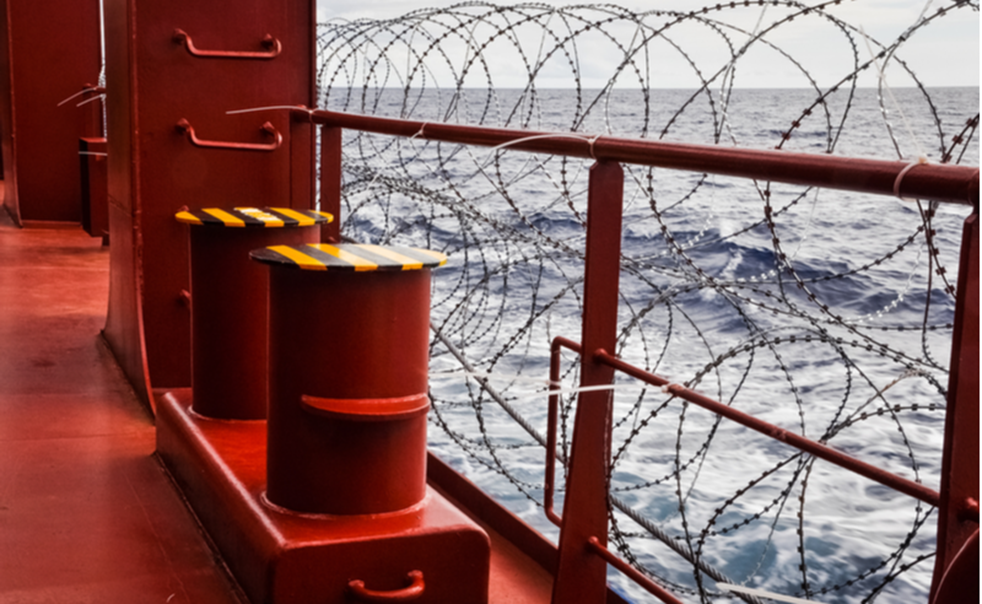As at 19 February 2021, the situation involving the ports in Libya has been reported as follows, with the ports of Derna and Sirte remaining closed and non-operational.
Operating ports
- Al Khoms Port
- Benghazi Port
- Bouri Port
- Es Sider Port
- Farwah Port
- Marsa El Brega Port
- Marsa El Hariga Port
- Mellitah Port
- Misurata Port
- Ras Lanuf Port
- Tobruk Port
- Tripoli Port
- Zawia/Zawiyya Port
- Zuetine Port
Closed ports
- Derna Port
- Sirte Port
The situation in Libya continues to be unstable, hence shipowners and operators are recommended to assess all port calls on a case-by-case basis and to continue exercising caution when entering Libyan ports and waters. The following summarised recommendations remain applicable:
- Vessels should not navigate in or near to the coastal waters of Benghazi, Derna and Sirte, including the militarised area south of 34 00'N - a hefty fine of LD 150,000.00 (approx. USD 107,000.00) may be imposed for any breaches.
- Turkish vessels and crew should not call at any Libyan East ports due to the warning issued by the Libyan National Army (LNA).
- Vessels calling at Libyan ports should seek clarification on the COVID-19 restrictions and requirements in ample time prior to arrival with the local agent.
- Vessels should report their schedules (to local port agents) prior to arrival at any Libyan port, including a declaration of the vessel's sailing route, whether they are loading or discharging cargo and the type of cargo on board, so that the agents can notify the appropriate authorities.
- All vessels intending to call at Benghazi should submit to their appointed local port agent their cargo declaration along with the vessel's and owner's particulars, and P&I Club details prior to arrival.
The above recommendations are in addition to the usual sanctions checks, given that several Libyan individuals and entities are subject to international sanctions. Please refer to the article on Libya Sanctions for relevant information.
COVID-19 requirements highlights
All COVID-19 procedures primarily remain the same, however, Skuld's correspondent (Shtewi Legal & Pandi Services) advises that there are no longer remote pilotage requirements. Directives requiring vessels to quarantine for 14 days at anchorage may also now differ.
The Libyan Ports and Maritime Transport Authority has published a manual detailing the measures in place to prevent the spread of COVID-19 for ships calling at Libyan ports which should be followed by all ships (see attachment).
Shipowners and operators are advised to contact local ship's agents and P&I Correspondents for the most up-to-date information given that the situation continues to change swiftly.
US MARAD advisory
The US Department of Transportation Maritime Administration (US MARAD) issued an updated advisory on 10 February 2021 (2021-003). The advisory lists the following guidance:
- Vessels operating in Libya are advised to review security measures, ensure AIS is transmitting always (except when transmitting creates a threat to the safety or security of the ship or where a security incident is imminent, consistent with provisions of SOLAS and US law), and monitor VHF Channel 16.
- Vessels at anchor, operating in restricted manoeuvring environments, or proceeding at slow speeds should be especially vigilant. It is also advisable for commercial vessels transiting the area to conduct a risk assessment and incorporate appropriate protective measures into their vessel security plans.
- Masters, shipowners and operators are encouraged to check in with the NATO Shipping Center upon entering the Mediterranean Sea. In the event of any incident or suspicious activity, call the NATO Shipping Center and activate the Ship Security Alert System immediately. Mariners are also encouraged to review the "Central Mediterranean" section of the NATO Shipping Center website.
US international port security program
Members should take note of the latest US Coast Guard Port Security Advisory (2-20) of 22 December 2020 which highlights that ports in Libya are not maintaining effective anti-terrorism measures.
The advisory reminds shipowners that the UN Security Council Resolution 2441 authorizes the UN Sanctions Committee to impose certain measures on vessels attempting to illicitly export crude oil from Libya and that this resolution imposes several restrictions regarding loading, transporting, or discharging crude oil from Libya which may include the possible denial of port entry.
The USCG is required to assess the effectiveness of antiterrorism measures implemented in foreign ports from which US flagged vessels and foreign vessels depart on a voyage to the US and other foreign ports believed to pose a security risk to international maritime commerce.
All vessels arriving to the United States that visited the countries listed in in the Port Security Advisory during their last five port calls must take the following actions listed below while in the listed countries:
- Implement measures as per the ship's security plan equivalent to Security Level 2;
- Ensure that each access point to the ship is guarded and that the guards have total visibility of the exterior (both landside and waterside) of the vessel. Guards may be:
- provided by the ship's crew, however, additional crewmembers should be placed on the ship if necessary, to ensure that limits on maximum hours of work are not exceeded and/or minimum hours of rest are met, or
- provided by outside security forces approved by the ship's master and Company Security Officer. - Attempt to execute a Declaration of Security;
- Log all security actions in the ship's security records; and
- Report actions taken to the cognizant US Coast Guard Captain of the Port prior to arrival in the US.
Any affected vessel that does not meet the stipulated conditions may be denied entry into the US.
